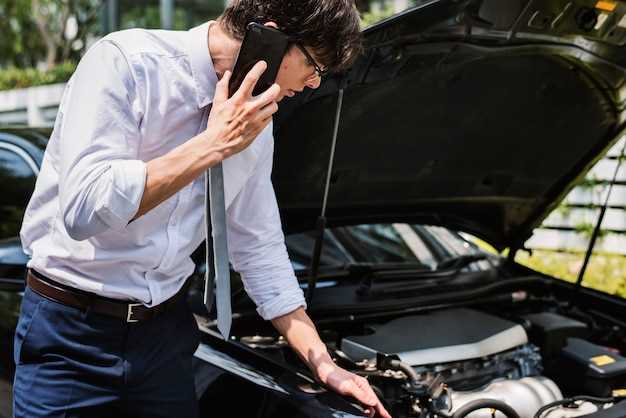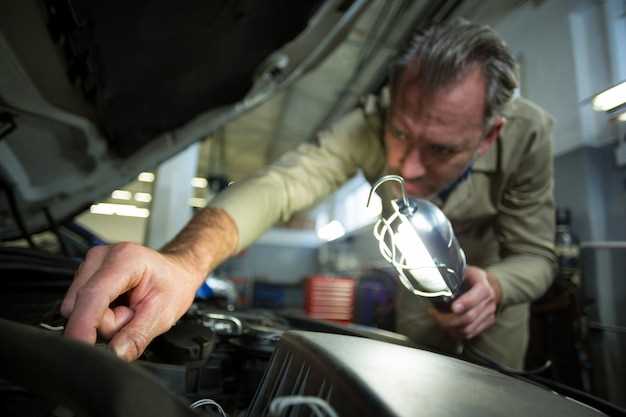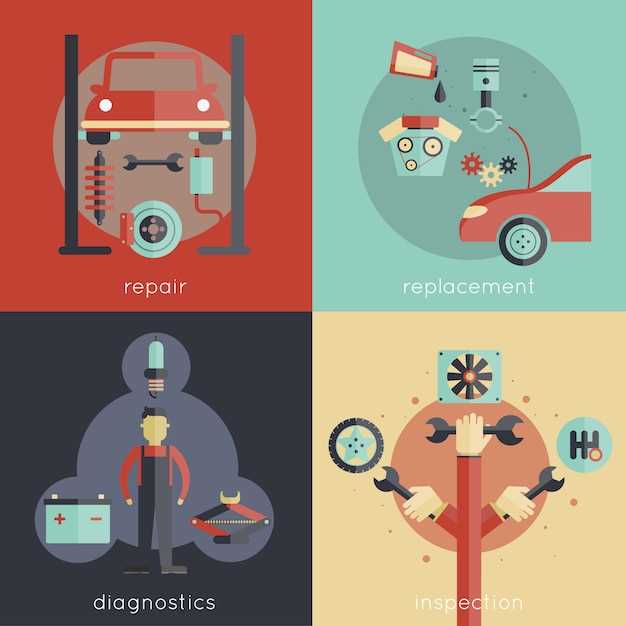
Engine knocking, often described as a pinging noise emanating from the engine, can be alarming for drivers and car enthusiasts alike. This phenomenon occurs when fuel combusts prematurely in the engine’s combustion chamber, leading to a disturbance in the overall engine operation. Understanding the causes of engine knocking is essential for maintaining optimal engine performance and longevity.
One of the primary reasons for knock is the quality of fuel used in the vehicle. Lower octane fuels may not withstand the pressure and temperature conditions within the engine, resulting in pre-ignition and, ultimately, knocking. Additionally, factors such as incorrect ignition timing and carbon buildup can exacerbate this issue, creating a perfect storm that compromises engine efficiency.
Fortunately, there are various solutions to mitigate engine knocking. Upgrading to a higher octane fuel, adjusting ignition timing, and performing regular maintenance can significantly reduce the likelihood of knock occurring. Furthermore, addressing any underlying mechanical issues is crucial in ensuring that your engine runs smoothly and efficiently, ultimately prolonging its lifespan and enhancing vehicle performance.
Identifying the Symptoms of Engine Knock

Engine knock, often referred to as detonation, can indicate serious problems within your vehicle’s engine. Recognizing the symptoms early can help prevent further damage and costly repairs. One of the most common indicators of engine knock is an unusual rattling or pinging sound that occurs during acceleration. This sound is typically more pronounced under heavy load or when the engine is under stress.
Another symptom to watch for is a decrease in engine performance. This may manifest as a loss of power, reduced fuel efficiency, or sluggish acceleration. A noticeable drop in quality of performance can signal that the engine is struggling due to knocking, which signifies improper combustion of the air-fuel mixture.
Vibrations felt through the vehicle can also indicate engine knock. If you experience excessive vibrations or shaking while driving, it may be a sign that your engine is not operating smoothly due to knocking, and components might be suffering from excessive stress.
Monitor for any warning lights on your dashboard. Modern vehicles may trigger a check engine light if the engine management system detects abnormal combustion events associated with knock. This indicator should prompt immediate attention from a qualified mechanic.
Lastly, pay attention to any changes in exhaust emissions. Engine knock can lead to incomplete combustion, resulting in an increase of harmful pollutants escaping from the exhaust system. Unusual smoke or a strong gasoline smell can further hint at underlying engine issues.
Being aware of these symptoms of engine knock is crucial for maintaining engine quality and performance. Regular maintenance checks can help mitigate the risks associated with knock and ensure that your vehicle remains in optimal condition.
How Fuel Quality Affects Engine Performance

Fuel quality plays a crucial role in the overall performance of an engine. High-quality fuel is designed to burn efficiently, reducing the likelihood of engine knocking, which occurs when the air-fuel mixture detonates prematurely. This premature detonation can lead to significant damage and decreased engine efficiency.
One of the key factors influencing fuel quality is its octane rating. Higher octane fuels are less prone to knocking, allowing for better performance in high-compression engines. When using lower quality fuel with a lower octane rating, engines may experience knocking even during normal operating conditions, leading to potential long-term damage.
Additionally, the presence of impurities and additives in fuel can affect combustion efficiency. Contaminants can disrupt the smooth operation of the engine and contribute to carbon build-up, which intensifies knocking. Quality fuels often include detergents and other additives that help maintain engine cleanliness and support optimal performance.
Moreover, using high-quality fuel can lead to improved fuel economy and reduced emissions. Engines running on superior fuel tend to operate more smoothly, which minimizes the risk of knocking and allows for better power delivery. This can result in not only a more enjoyable driving experience but also lower operating costs.
In summary, fuel quality significantly influences engine performance. Choosing high-quality fuel reduces the risk of knocking, enhances combustion efficiency, and promotes the longevity of the engine, demonstrating the importance of selecting the right fuel for optimal performance.
Preventive Measures and Remedies for Engine Knock
Engine knock, characterized by an abnormal rattling or pinging noise during combustion, can severely impact engine performance and longevity. Implementing preventive measures and remedies can help mitigate this issue and ensure optimal engine operation.
1. Use High-Quality Fuel: One of the most effective ways to prevent engine knock is by using high-quality fuel with the appropriate octane rating recommended by the manufacturer. Low-quality fuel may contain impurities or inadequate octane levels, leading to premature ignition and knock.
2. Regular Engine Maintenance: Routine maintenance practices, such as checking and replacing spark plugs, can greatly reduce the likelihood of knocking. Worn or incorrectly gapped spark plugs can cause a misfire, leading to abnormal combustion and knock.
3. Maintain Proper Engine Timing: Ensuring that the ignition and valve timing are set correctly is crucial. Advanced ignition timing can lead to knocking, as it causes fuel to ignite too early. Regular checks and adjustments to timing can help avoid this issue.
4. Monitor Cooling System: An overheated engine is more susceptible to knocking. Regularly checking the cooling system–ensuring that the radiator, hoses, and coolant levels are optimal–will help maintain the engine at safe operating temperatures.
5. Adjust Air-Fuel Mixture: Maintaining the correct air-fuel mixture can prevent knocking. An overly lean mixture, where there is too much air and not enough fuel, can lead to higher combustion temperatures and knocking. Regular inspections by a qualified technician can help ensure the mixture is balanced.
6. Use Knock Sensors: Many modern engines are equipped with knock sensors that detect knocking sounds and adjust the ignition timing accordingly. Ensuring these sensors are functional can provide real-time adjustments to prevent knock.
7. Additives and Fuel Treatments: Certain fuel additives can enhance fuel quality and reduce knocking. Researching and using reputable products designed to improve combustion efficiency can be beneficial.
By implementing these preventive measures and remedies, vehicle owners can effectively reduce the occurrence of engine knock, enhancing both performance and engine lifespan.

